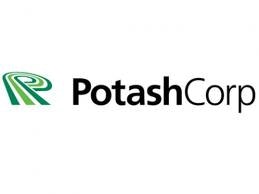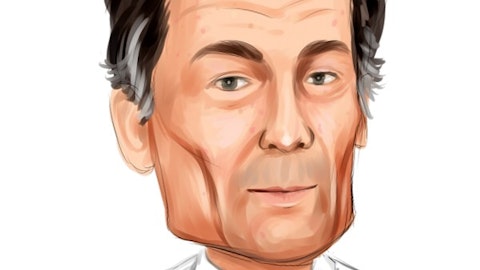Strong population and income growth in the developing world have buoyed the demand for commodities, especially for food. At the same time, unstable weather has resulted in shortages of certain agricultural commodities, such as grains, driving prices higher. The robust demand facing limited supplies is likely to result in a new commodities supercycle, in which prices will climb substantially in the coming years. Some, like famous hedge fund manager Jeremy Grantham, believe the new cycle is part of a general commodities paradigm shift, which Grantham called “the most important economic event since the Industrial Revolution.” All this has boosted the appeal of agricultural commodities as an investment class.
Dividend investors seeking exposure to agricultural commodities should consider different industry players across the value chain. These plays include farm and fertilizer stocks as well as commodities distributors and equipment manufacturers. Here is a list of five stock candidates with yields at or above 2% for an agricultural commodities-oriented portfolio.

Deere & Company (NYSE:DE) is a farm (and construction) equipment maker with a dividend yield of 2.1% and a payout ratio of 24%. Intensive farming in the developing world will increase the demand for Deere’s farm equipment. A drought-induced commodities price boom has improved the demand for the company’s equipment in emerging markets, such as Brazil. The company is currently heavily investing in Brazil and China, which is weighing on its cash flow but over the long haul will be accretive to its earnings. The company’s long-term EPS CAGR is forecasted at 9.4% annually. Deere is a good dividend grower, with dividend growth averaging 14.5% annually over the past five years. The stock is priced attractively at 11.5x trailing and 10.5x forward earnings, below historical averages. Still, investors should take into consideration Deere’s negative free cash flow and an excessive long-term debt level at 328% of equity. Investing legend Warren Buffett bought nearly 4 million DE shares last quarter.
Terra Nitrogen Company, L.P. (NYSE:TNH) is an MLP engaged in the production of nitrogen fertilizer products. This MLP pays variable distributions and distributes all its available cash flow to unitholders. Currently, Terra Nitrogen Company, L.P. (NYSE:TNH) pays a distribution yield of 7.9%. Its distributions growth averaged 48% annually over the past five years. This MLP has benefited from the global drought that has boosted the demand for yield-enhancers. In the long run, the food needs of a rapidly rising population will increasingly depend on shrinking arable land acreage and less productive soil that will require some sort of fertilizer to increase crop yields. This bodes well for the nitrogen fertilizer demand, which is expected to expand 12% by 2016, according to the International Fertilizer Industry Association. Terra Nitrogen has a high ROE of 129% and no long-term debt. The MLP relies heavily on natural gas in the production of fertilizer, which is good for its earnings, as lower natural gas prices have significantly reduced costs. Billionaire Jim Simons holds a stake in the company.
Rentech Nitrogen Partners LP (NYSE:RNF) is an MLP engaged in nitrogen fertilizer production. It pays a distribution yield of 9%. This MLP has variable distributions and distributes all available cash to unitholders. The partnership started its distributions in May 2012. The logic for investing in Rentech Nitrogen is the same as for other fertilizer plays. Recently, the partnership completed its acquisition of Agrifos LLC that produces ammonium sulfate. The acquisition will help boost shareholder distributions this year. The positive cost trends—referring to the use of cheap natural gas— observed with Terra Nitrogen apply to Rentech Nitrogen as well. The MLP has low debt-to-equity ratio and a remarkably high ROE. In late November, CNBC’s “Mad Money” host Jim Cramer made a bullish call on this stock, emphasizing its lucrative yield. This MLP does not really have a strong following among hedge funds.
Archer Daniels Midland Company (NYSE:ADM) is an ethanol producer and one of the world’s largest processors of wheat, corn, oilseeds, and cocoa. The company is a dividend aristocrat with 37 consecutive years of dividend increases. Its dividend yields 2.6% on a payout ratio of 49%. Archer Daniels Midland Company (NYSE:ADM) dividends grew, on average, by 8.8% annually over the past half-decade. Its long-term annual EPS CAGR is forecasted at 10% per year. While rising corn prices last year lead to a significant margin squeeze in its ethanol business, ADM looks poised to benefit from the booming demand for food in the long term. Increases in protein-rich food consumption in the emerging world will require more grains to feed livestock, which, in turn, will bolster the demand for ADM’s products. ADM is trying to position itself for future growth through acquisitions. It recently made an offer to buy Australia’s GrainCorp, a grain handler, for $3 billion, but the offer was turned down. ADM has below-industry price-to-book and price-to-sales ratios. Its forward P/E of 12.5x is lower than its historical multiples. The stock is popular with billionaire Cliff Asness.





